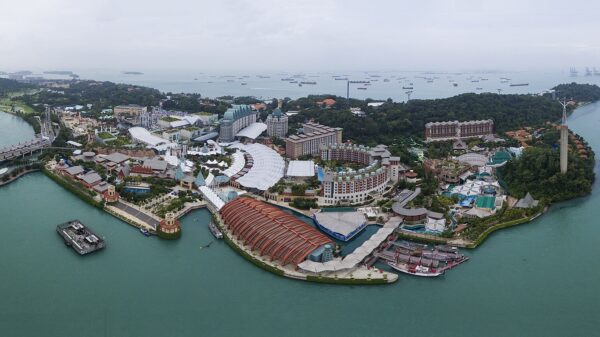The state-owned Yacimientos de Litio Bolivianos (YLB) and the Russian company Uranium One Group signed an agreement to establish the first plant for Direct Lithium Extraction (LDE) in Uyuni, Potosí.
The ceremony, held in the presence of President Luis Arce, marked a crucial step towards the industrialization of Bolivia’s lithium resources.
The parties signed the agreement last week. It outlines the construction of a modern pilot plant with EDL technology, focusing on the production of battery-grade lithium carbonate. The plant will be developed in three phases, with a total production capacity of up to 14,000 tons annually.
“The signing of the agreement translates into benefits for our country,” President Arce said. “We are confident that these investments and the work and production that will be generated will lead to greater development.”
The president also highlighted Bolivia’s commitment to maintaining control over its lithium resources throughout the production and marketing chain.
“Bolivia ratifies, with this agreement, that we are and will participate in absolutely all parts of the production and supply chain of our lithium,” President Arce said.
Read more: Lithium South Development technical report shows 40% increase in lithium recovery
Read more: Lithium South Development first production well installed at Hombre Muerto lithium project
This is the second deal YLB has signed with Uranium One
YLB President Karla Calderón, speaking at the signing event at the Casa Grande del Pueblo, highlighted the significance of the agreement. Calderón said this is the second time the state-owned company has signed a deal with the Russian firm.
The first one happened last June. Both parties then agreed to build an industrial complex focused on the extraction and production of lithium carbonate in Potosi.
“The signing of this new agreement is an important step in the industrialization of lithium under a sovereign model,” Calderón said.
In the initial phase, the plant will produce 1,000 tons per year, followed by an expansion to 8,000 tons in the second phase. The third phase will see an additional 5,000 tons, bringing the total annual production capacity to 14,000 tons.
Minister of Hydrocarbons and Energy Franklin Molina emphasized the groundbreaking nature of the project. He noted that this is the first time such EDL technology projects have been established in Bolivia.
Molina said that the first phase of the pilot plant would require a $100 million investment. The second phase, constituting an expansion through a semi-industrial module, would need a $200 million investment.
“This already gives the signal to begin the construction of the LDE plants, an aspect that is fundamental for the development of our lithium industry,” Minister Molina said. “This will not only impact the national economy but will generate development in both the construction and operation phases.”
Uranium One is an international group of companies, part of TENEX (an organization of ROSATOM), and one of the world’s largest uranium producers. It has a diverse portfolio of assets worldwide, including in Kazakhstan, Tanzania, and Namibia among others.














